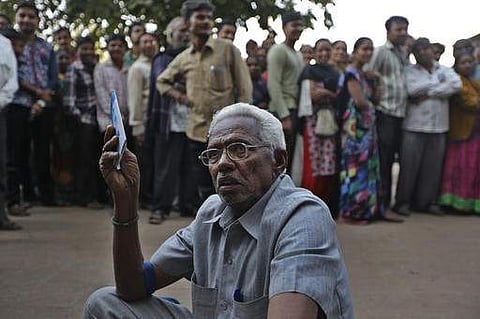

ERODE: The advent of e-Governance has ensured that another relic of British era, the Jamabandhi system, would die a quick death at the hands of digital India. Jamabandhi as a system developed during the British Raj, when people had little access to officials and meeting a collector was a rare feat. To address this lacuna, the powers that be decided to organise jamabandhi sessions. While on the face of it, the system aimed at assessing and redressing public grievances, but on a deeper level, it was just another mechanism to collect pending taxes.
Independent India retained the system. Every year, between May and June, revenue officials would organise special camps to collect petitions seeking financial aid and action on social issues. This afforded the locals an opportunity to see top officials, including collector, at work as they were the designated jamabandhi officers in each taluk. The officials would audit village accounts in each firka by inviting the VAOs and collect pending land tax.
During the DMK's previous regime, land tax was reduced to Rs 5 per acre for wet and Rs 2 for dryland, making revenue from this source redundant. Such was the paltry sum collected via land tax that VAOs started remitting money out of their own pockets to save themselves the botheration of going from door to door. With land revenue dwindling, the system dropped a few rungs down on the official to-do list.
Another nail in the old system's coffin was struck when officials started organising monthly and weekly grievance meetings at the Collectorate. Besides the monthly affair, Collectors and DROs began organising weekly camps in villages, with Amma Thittam (Amma Scheme) camps playing a complementary role in receiving public petitions.
However, with the e-Governance's whirlwind takeover of government office works, people now have access to services at the tip of their fingers. An SMS, a WhatsApp message or a Facebook post draws swifter reaction than waiting for condescending officials in serpentine queues, weathering the elements.
A look at the taluk offices in the district reveals how pervasive technology has got. Long queues have been replaced by busy officials scanning their phones or laptops for a fresh application seeking one of the many certificates, say revenue officials posted on jamabandhi duty in the district.